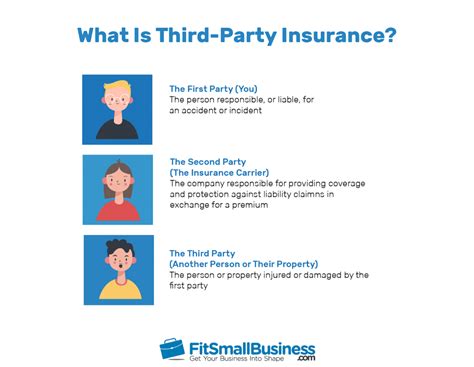Learn about ALOP insurance, factors affecting claims, coverage and exclusions, calculating claims, and the importance for businesses. Get expert insights now.
Understanding ALOP Insurance
Contents
Advance Loss of Profit (ALOP) Insurance is a type of insurance policy that provides coverage to businesses in case of financial losses resulting from delays in project completion. It is designed to protect businesses from the financial impact of unforeseen delays in completing a project, which can lead to a loss of revenue and additional expenses.
ALOP insurance is typically purchased as part of a construction, engineering, or infrastructure project, and provides coverage for the potential loss of profits that may occur as a result of project delays. It is important to note that ALOP insurance is different from traditional property insurance, as it specifically covers the financial impact of project delays, rather than physical damage to property.
One of the key features of ALOP insurance is that it is tailored to the specific needs of each project, taking into account factors such as the project timeline, budget, and potential risks. This customized approach allows businesses to have peace of mind knowing that they are covered in the event of unforeseen delays.
When considering whether to purchase ALOP insurance, businesses should carefully assess the potential risks and financial impact of project delays. By obtaining ALOP insurance, businesses can protect their financial interests and minimize the impact of project delays on their bottom line.
Factors Affecting ALOP Claims
Advance Loss of Profit (ALOP) insurance is a type of coverage that businesses can purchase to protect themselves against financial loss resulting from a delayed construction project. However, there are various factors that can affect the success of an ALOP insurance claim. It’s important for businesses to understand these factors in order to maximize their chances of receiving the compensation they deserve.
One of the key factors affecting ALOP claims is the documentation and record-keeping practices of the insured party. In order to make a successful claim, the insured must be able to provide clear and comprehensive documentation of the delay, including the causes of the delay, the financial impact, and any steps taken to mitigate the loss. Without adequate documentation, the insurance company may be hesitant to approve the claim.
Another important factor is the wording of the insurance policy itself. Each ALOP insurance policy is different, and the specific wording and exclusions in the policy can have a significant impact on the success of a claim. It’s important for businesses to carefully review and understand the terms of their policy in order to ensure that they are covered in the event of a delay.
External factors, such as government regulations or acts of nature, can also play a role in the success of an ALOP insurance claim. If the delay is caused by a factor that is outside of the insured party’s control, it may be easier to make a successful claim. However, if the delay is the result of negligence or poor planning on the part of the insured, the insurance company may be less likely to approve the claim.
In conclusion, there are several factors that can affect the success of an ALOP insurance claim. By maintaining thorough documentation, reviewing the policy wording, and considering external factors, businesses can improve their chances of receiving the compensation they deserve in the event of a delayed construction project.
Coverage and Exclusions of ALOP
Advance Loss of Profit (ALOP) insurance is a type of insurance that provides coverage for financial losses that a business may suffer due to delays in the completion of a project caused by an insured peril, such as fire, earthquake, or flood. The coverage of ALOP insurance typically includes the additional expenses incurred by the business to minimize the delay and mitigate the financial impact of the delay.
However, it’s important to note that ALOP insurance also has certain exclusions that businesses need to be aware of. One common exclusion in ALOP insurance is the exclusion of losses caused by events or perils that are not covered under the primary property damage insurance policy. This means that if the delay in completion of a project is caused by an event that is not covered under the primary property damage insurance, the ALOP insurance may not provide coverage for the resulting financial losses.
Another common exclusion in ALOP insurance is the pre-existing condition exclusion. This means that if the delay in completion of a project is caused by a condition that existed before the inception of the ALOP insurance policy, the insurance may not provide coverage for the resulting financial losses. It’s important for businesses to carefully review the exclusions of their ALOP insurance policy to ensure that they have a clear understanding of what is and isn’t covered.
In addition to the exclusions, ALOP insurance also has specific conditions and requirements that must be met in order for a claim to be valid. For example, most ALOP insurance policies require the insured business to exercise reasonable efforts to mitigate the delay and minimize the financial impact of the delay. Failure to meet these conditions may result in the denial of the claim.
Calculating ALOP Insurance Claims
Calculating ALOP Insurance Claims can be a complex process, as it involves taking into account various factors and variables. Advance Loss of Profit (ALOP) insurance is designed to provide coverage for financial losses incurred due to delayed completion of a project, which in turn leads to a loss of anticipated profits. The calculation of ALOP insurance claims is crucial for businesses to ensure they receive the compensation they are entitled to.
One of the key factors in calculating ALOP insurance claims is the period of indemnity. This refers to the time period for which the ALOP policy provides coverage. It is important to accurately determine the period of indemnity, as this will directly impact the amount of the claim.
Another important consideration is the projected revenue and expenses. Businesses must provide evidence of the anticipated revenue and expenses during the period of delay, as well as the projected revenue and expenses if the delay had not occurred. This data is crucial for calculating the financial impact of the delay and determining the amount of the ALOP insurance claim.
Additionally, the cost of mitigation must be taken into account when calculating ALOP insurance claims. This refers to the expenses incurred by the insured party to minimize the impact of the delay, such as overtime payments, additional labor costs, or rental of alternative facilities. These costs can be included in the ALOP insurance claim, provided that they are deemed reasonable and necessary.
It is also important to consider any deductibles and policy limits when calculating ALOP insurance claims. Businesses must be aware of the deductible amount specified in the policy, as well as any limits on coverage. Understanding these details will ensure that the ALOP insurance claim is accurately calculated and that the business receives the appropriate compensation for their losses.
Importance of ALOP for Businesses
Advance Loss of Profit (ALOP) insurance is a crucial aspect for businesses to consider, especially those that are dependent on stable operations for their revenue generation. ALOP insurance is designed to provide financial protection to businesses in the event of a delay in the completion of a project due to an insured peril. This delay can result in significant financial losses for the business, including increased costs, loss of revenue, and potential damage to their reputation.
By investing in ALOP insurance, businesses can mitigate the risks associated with project delays and protect their financial stability. This type of insurance can provide peace of mind to businesses, knowing that they have a safety net in place to cover any unexpected delays that may arise.
Furthermore, ALOP insurance can also enhance a business’s competitive edge in the market. By demonstrating a commitment to risk management and financial protection, businesses can build trust and credibility with clients and stakeholders, ultimately contributing to their overall success and longevity in the industry.
In summary, the importance of ALOP for businesses cannot be overstated. It offers financial security, risk mitigation, and a competitive advantage, ultimately enabling businesses to navigate challenges and thrive in a dynamic business environment.












